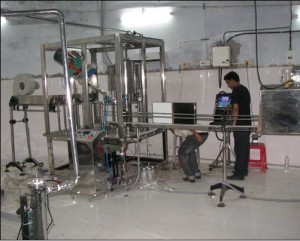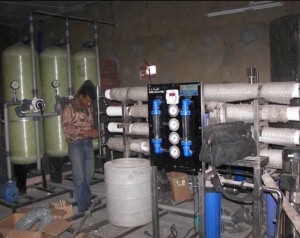Whether from domestic sources or from industrial sources, waste water is found in plenty. Let us first define waste water. ŌĆśWaste waterŌĆÖ refers to any water which has been used for some human activity and thus has been contaminated and left it unsuitable for further use. It must be noted here that the environment is immensely damaged  by waste water. Hence, waste water should be treated before it is disposed off.
by waste water. Hence, waste water should be treated before it is disposed off.
What is waste water treatment? Waste water treatment is designed to achieve improvements in the quality of the waste water. There are several methods by which waste water can be treated. If broadly categorized, waste water treatment process has three main groups:
Physical Treatment
Chemical Treatment
Biological Treatment
Physical treatment of waste water includes the three processes of sedimentation, aeration and filtration. In Sedimentation, contaminating objects are removed by allowing those to settle down at the base. In ŌĆśaerationŌĆÖ, air is physically added to the waste water to provide oxygen to the contaminated water. The filtration process is all about passing the water through various filters and separate the solid contaminates from the water.
 Chemical treatment is all about using chemicals and remove contaminates from water. ŌĆśChlorinationŌĆÖ is the most common method of chemical treatment of water. Chlorine is used to kill bacteria present in the water. Apart from chlorination, oxidization is also another important process which comes under chemical treatment.
Chemical treatment is all about using chemicals and remove contaminates from water. ŌĆśChlorinationŌĆÖ is the most common method of chemical treatment of water. Chlorine is used to kill bacteria present in the water. Apart from chlorination, oxidization is also another important process which comes under chemical treatment.
In Biological treatment, bacteria and other such microorganisms are used to decompose the wastewater and stabilize the end product.
While water treatment plants use the latest technology to carry out water treatment process, water softening plant softens hard water and makes it suitable for domestic and industrial purposes.
